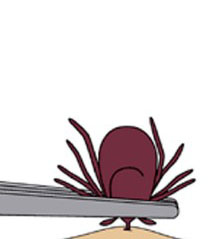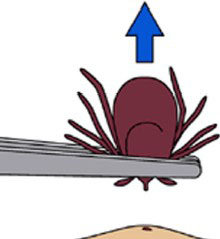Last Updated on May 11, 2014 6:35 pm
With the warmer temperatures in High Country the threat of ticks is already on the rise. Via social media residents are already noticing issues relating to pets, children and adults.
The Centers for Disease Control and Prevention offers advice on dealing with ticks.
Tick Removal
If you find a tick attached to your skin, there's no need to panic. There are several tick removal devices on the market, but a plain set of fine-tipped tweezers will remove a tick quite effectively.
How To Remove A Tick
Use fine-tipped tweezers to grasp the tick as close to the skin's surface as possible.
Pull upward with steady, even pressure. Don't twist or jerk the tick; this can cause the mouth-parts to break off and remain in the skin. If this happens, remove the mouth-parts with tweezers. If you are unable to remove the mouth easily with clean tweezers, leave it alone and let the skin heal.
After removing the tick, thoroughly clean the bite area and your hands with rubbing alcohol, an iodine scrub, or soap and water.
Avoid folklore remedies such as “painting” the tick with nail polish or petroleum jelly, or using heat to make the tick detach from the skin. Your goal is to remove the tick as quickly as possible–not waiting for it to detach.
tweezers grasping a tick close to the skin's surface

tweezers pulling a tick away from the skin in an upward motion

Follow Up
If you develop a rash or fever within several weeks of removing a tick, see your doctor. Be sure to tell the doctor about your recent tick bite, when the bite occurred, and where you most likely acquired the tick.
WebMD also offers up the following:
Most ticks do not carry diseases, and most tick bites do not cause serious health problems. But it is important to remove a tick as soon as you find it. Removing the tick completely may help you avoid diseases such as Lyme disease that the tick may pass on during feeding, or a skin infection where it bit you.
When you return home from areas where ticks might live, carefully examine your skin and scalp for ticks. Check your pets, too.



















